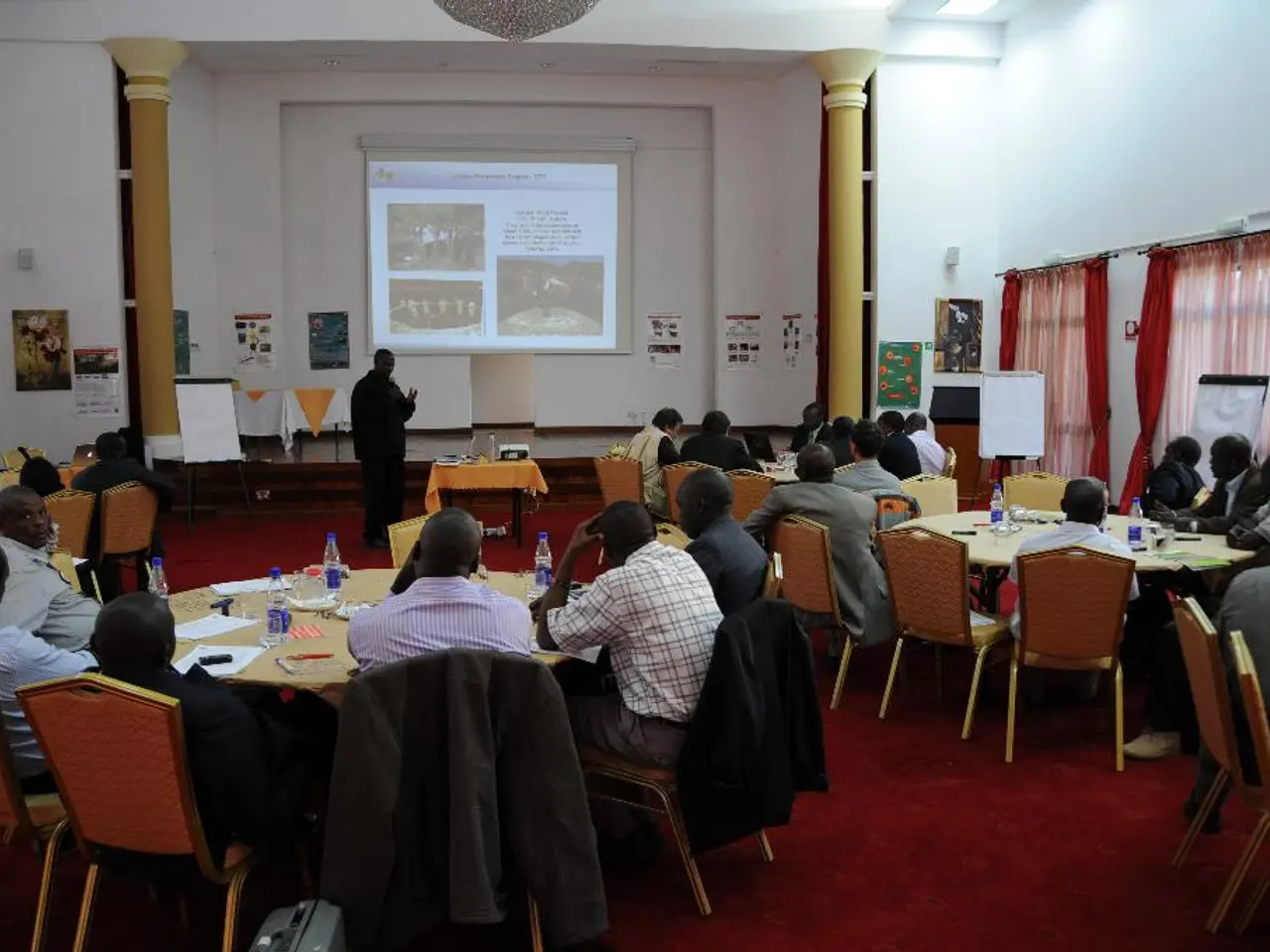Discussion Kicked Off at Union Gathering Over Reversal in Middle East Strategy - Discussion ensues at the Union following a shift in Middle East policy
In a significant policy shift, the German federal government has announced it will halt arms exports to Israel for operations in the Gaza Strip. This decision, made public by Chancellor Friedrich Merz in early August 2025, comes in response to the Israeli cabinet's escalation of military action in Gaza, aiming to prevent the use of German weapons in the area.
Merz reaffirmed Israel’s right to self-defense and the necessity to disarm Hamas, but emphasized that the increased military operations make it more difficult to achieve the release of hostages and a ceasefire. The suspension covers all weapons and military goods that could be used in Gaza, marking a departure from Germany’s longstanding, historically rooted support for Israel.
The policy decision has sparked debate and internal tensions within parties traditionally supportive of Israel, such as the CDU and CSU. While these parties have not issued a unified public stance that contradicts Merz’s decision, they face criticism from members who view the move as a serious mistake. The German government under Merz appears to be balancing its historic commitment with present humanitarian and diplomatic concerns.
Foreign policy experts express mixed views on the suspension. Some see it as a disappointment given Germany’s historical responsibility toward Israel, suggesting it undermines Berlin's special commitment to Israel born from the Holocaust. Others argue the move reflects wider international isolation of Israel and pressure from global public opinion, highlighting the need for Israel to reconsider its approach to maintain its most important EU ally. Experts note the complex challenge Israel faces in balancing military necessity with international support.
Despite the suspension, Germany remains one of Israel's significant arms suppliers. Notably, Germany approved the delivery of a submarine to Israel in December 2023 before the recent freeze, showing that arms exports decisions can be nuanced and sometimes disconnected from immediate political crises.
On Sunday, a video conference will be held to discuss the current international developments, including the situation in the Middle East. Günter Sautter, foreign policy advisor to Chancellor Friedrich Merz, will participate in the meeting, along with the AG Foreign Affairs. The vice-chancellor, Lars Klingbeil, has signaled his agreement to suspend arms exports.
This news article is based on reports from various sources, including the "Bild" newspaper. As the situation unfolds, further updates and perspectives are expected to emerge.
- The community and various political parties are divided over the German federal government's employment policy, as a significant shift in policy-and-legislation has led to the suspension of arms exports to Israel, raising concerns about the longstanding support for Israel and its implications on future relations.
- Amidst the suspension of arms exports, the focus of general news and politics, especially foreign policy experts, has been on understanding the balance that the German government, under Chancellor Friedrich Merz, is trying to achieve between maintaining its historically rooted support for Israel and addressing present humanitarian and diplomatic concerns.








